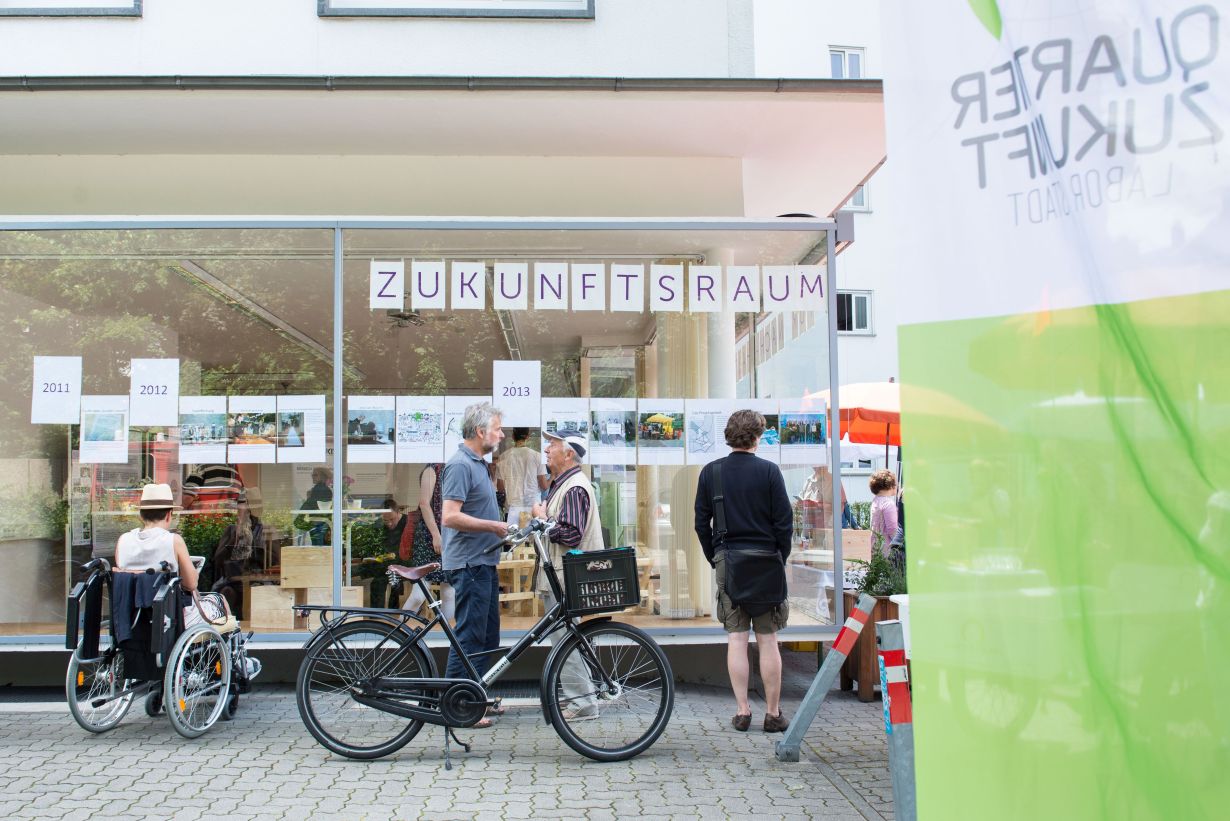Making life in the Oststadt quarter more ecologically efficient and socially fair and enhancing its economic and cultural sustainability – these are the goals of the “Urban Transition Lab 131” project conducted by Karlsruhe Institute of Technology (KIT) in cooperation with the quarter’s citizens. The researchers have set up this lab in the Karlsruhe Oststadt quarter to investigate possibilities to reduce CO2 emissions, save resources, strengthen neighborhood relations, or improve the health situation of the quarter’s inhabitants. Now, the project was honored twice by the German Council for Sustainable Development (RNE).
“The special feature of this project lies in the direct cooperation on an equal level with the people living and working in the quarter. This way, we not only have specific local knowledge on our hands that we can input and enhance, but rather succeed in triggering a sustainable development,” Alexandra Quint says. She is a member of the project team at the Institute for Technology Assessment and Systems Analysis (ITAS). The research subjects include the identification of ways to make the quarter more pedestrian-friendly as well as new methods for energetic renovation of buildings, the development of services for sustainable living as well as services for a sustainable mobility behavior. The researchers’ work has a strong interdisciplinary character: “Our team unites architects, philosophers, landscape designers, cultural scientists, environmental scientists, and geo-ecologists,” the urban geographer explains.
The project not only involves research, but also a lot of practical work: “For example, we have a newly devised energy concept for increasing the proportion of renewable energies in existing buildings or create initiatives intended to slow down our hectic everyday life,” Dr. Oliver Parodi, Head of the Urban Transition Lab 131 says. In a project for the support of bees, citizens and scientists jointly set up a public patch for growing herbs, fruits, and vegetables and put up a wooden beehive. “This not only makes the people aware of their environment and promotes healthy eating, but also creates a sense of community,” Quint explains. All this relies on the interplay of civil society groups, city administration, associations, companies, and, above all, the locals who take part on a regular basis.
In addition, several series of events inform on approaches and ideas for an alternative consumer behavior. As examples, Parodi mentions plant or clothes swap meets and a repair café that opens regularly. “The Urban Transition Lab 131 is designed as a platform to join in and has a strong networking character.” The dedicated “Future Room for Sustainability and Science”, a former retail shop, houses a neighborhood office, a science shop, and a community center and is meanwhile a popular meeting point and center for information and education.
Quint is proud that the concept has attracted worldwide attention: “The lab has a model character, is transferable, and has been studied by scientists from the Netherlands, Spain, and Australia. We even received cooperation from Mexico, Russia, Switzerland, the USA, Estonia, Portugal, and Spain.”
Award for the Transformation Project
The Council for Sustainable Development (RNE), that advises the Federal Government in questions of sustainability, found the Urban Transition Lab doubly eligible: It was awarded the “Sustainability Project 2017” quality label and was honored as one of four nationwide “Transformation Projects”. The RNE awards the quality label to uncover initiatives from society that make a particular contribution for a nationwide and global sustainable development. About 240 projects had applied for this label. According to the jury, the honored transformation projects have a particularly high potential to make the world more sustainable. The awarding ceremony took place at the end of May on the occasion of the annual RNE conference in Berlin.
Funding for the Urban Transition Lab 131 project will end in December 2017. The ITAS plans to continue and extend the lab structures in Karlsruhe after the end of the three-year project term.
For detailed information on the activities of the Urban Transition Lab 131 project, visit the http://www.quartierzukunft.de/en/ Internet site.
In close partnership with society, KIT develops solutions for urgent challenges – from climate change, energy transition and sustainable use of natural resources to artificial intelligence, sovereignty and an aging population. As The University in the Helmholtz Association, KIT unites scientific excellence from insight to application-driven research under one roof – and is thus in a unique position to drive this transformation. As a University of Excellence, KIT offers its more than 10,000 employees and 22,800 students outstanding opportunities to shape a sustainable and resilient future. KIT – Science for Impact.

